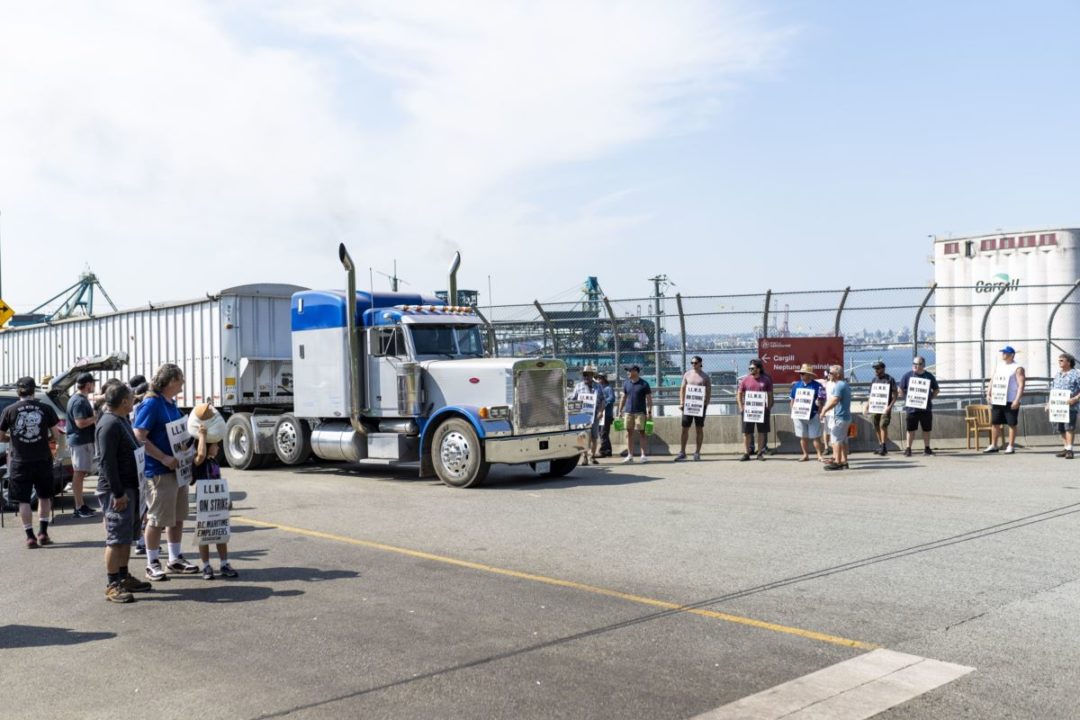
Visit Our Sponsors |
|
|
|
|
|
|
|
|
|
|
|
|
|
|
|
|
|
|
|
|
|
|
|
|
|
|
|
|
|
|
|
|
|
|
|
|
|
|

A picket line at the Neptune Terminal at the Port of Vancouver during a dockworkers strike in Vancouver earlier in July. Photo: Bloomberg
Canada’s federal government was poised July 29 to intervene in a labor dispute to ensure that the country’s busiest port remains open after dockworkers rejected a mediated agreement for the second time in the month of July.
Labor Minister Seamus O’Regan Jr. said that he’s directed the Canada Industrial Relations Board to determine whether the dockworker union’s rejection of the deal has eliminated the possibility of a negotiated resolution. If so, the government can either impose a new collective agreement on the parties or final binding arbitration, he said.
“The government is prepared for all options and eventualities,” O’Regan said in a statement. “Our economy cannot face further disruption from this dispute.”
The turmoil began July 1, when more than 7,000 dockworkers went on strike for 13 days, crippling the flow of trade through the port of Vancouver — Canada’s busiest maritime hub — and Prince Rupert, British Columbia. The stoppage snarled an estimated C$10 billion ($7.6 billion) in shipments as pulp mills shut down, mines were curtailed, and the cost of goods surged for thousands of companies, prompting Prime Minister Justin Trudeau’s government to send in a mediator to get a negotiated deal done.
A tentative agreement was first reached on July 13, but was rejected by the International Longshore & Warehouse Union’s caucus. Though dockworkers eventually returned to work late on July 28, the union’s members voted down the pact, raising the possibility of another stoppage, as they could strike again with 72 hours of notice. “We call on our direct employers to come to the table and negotiate something that works for our members and the industry,” said Rob Ashton, the union’s president.
The deal would have raised wages by 19.2% over four years to a median of C$162,000 a year, according to a statement late July 28 from the BC Maritime Employers Association. The union’s leadership had recommended that its members vote in favor.
Business groups — including the regional board of trade and the country’s largest association of small and medium-sized businesses — lambasted the union, saying it was time for the government to intervene to ensure that the ports stay open.
“Businesses from coast to coast are paying the price for the union’s irresponsible actions,” the Canadian Federation of Independent Business said. “The federal government must do what’s best for the country, our entrepreneurs and the economy.”
RELATED CONTENT
RELATED VIDEOS
Timely, incisive articles delivered directly to your inbox.

